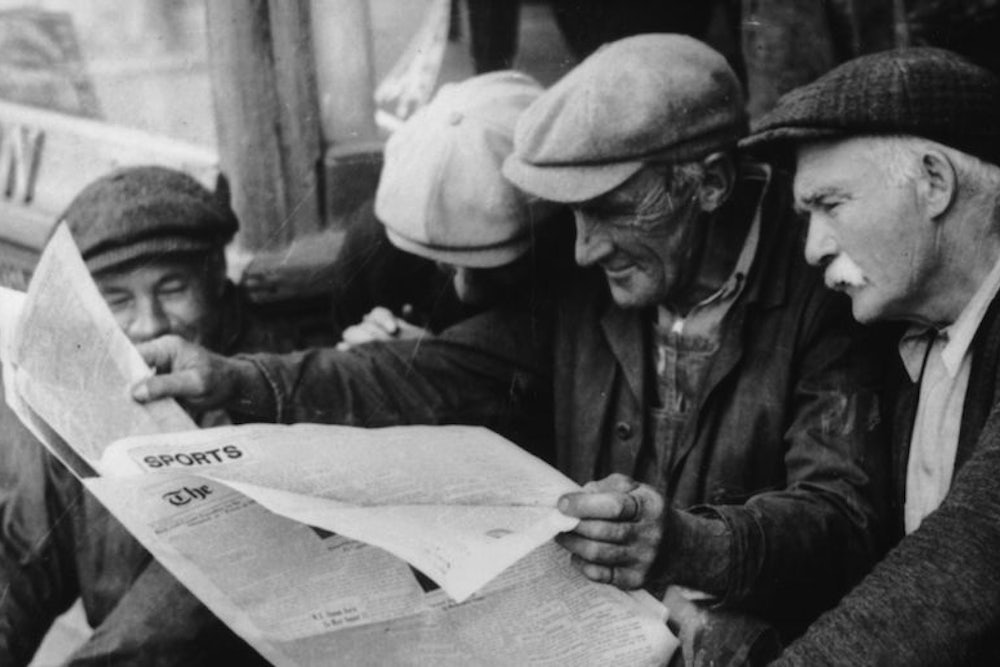A German "military mission" has just filtered into Bucharest and, as usual, we are all terribly surprised. It's a funny thing, but we were looking the other way when it happened. This, queerly enough, is what we were doing when Norway was invaded, when Leopold surrendered, when France collapsed, and so on. Now Hitler is a very fast mover, and there is a censorship, but still…. Never before have we supported such an army of correspondents in the hotels and cafés of Europe, never before has the correspondent been considered such an ornament to our democratic culture—yet we are nearly as much in the dark today as we were in 1815 when Jackson fought the Battle of New Orleans, not knowing that peace had been made two weeks before in Ghent….
For most of us, the war has been a rather ghastly kind of entertainment, more heartrending—yes, and more exciting, more dangerous—than the Lindbergh baby or the Johnstown flood. Why else do we listen to three, four, five, and six broadcasts of stale news in a day and, on a particularly ferocious day, buy two and three newspapers? And how impatient we get if the news is dull!
We kept complaining last fall about the phony war, we wanted our money back; now if nothing sensational happens for a week or two, we reply when asked what the news is, "Oh, there's nothing new. The English are still bombing the Germans and vice versa," in a tone that means, how tiresome! Naturally, the show is no musical comedy. We expiate something every time we share the sufferings of the British—courtesy of an aspirin manufacturer or of some New York daily. We feel a kind of white magic in it too: If I keep in touch with the situation, it can't get out of my control; nothing really bad can happen while I have my eye on it. Yet there is a certain strange, exaggerated smugness about the radio listener as the hour for the news broadcast approaches, the ostentatious consultation of the watch, the face composed to hear the worst, the air of a painful duty about to be executed, no matter what the cost to the sensibilities, till a roomful of people around a radio can look like the ladies in the orchestra seats at Carnegie Hall, submitting themselves to a good stiff dose of Beethoven. There is something histrionic and false here, covering up something real—the war is giving us a lift, but since we may be called upon to defend "civilization as we know it," we can't let anyone see that….
Today Poland, Czecho-Slovakia, Norway, and Holland stand like great closed houses, yet here quite possibly the new Europe is being constructed; here are at least partial answers to the questions we are all asking: Can Hitler survive a victory? Will satisfied fascism retain the same character as hungry fascism? What is the new world-state that Hitler is planning? Is there sabotage? Is there resistance? Is there anything left of the socialist movement? Is there any hope for revolution if Hitler is stalemated? And what if he is not? The New York Times sends a correspondent on an official tour of Poland, and we learn that Warsaw is in ruins, that the Jews are in a ghetto, and that there is danger of typhus; but the German propaganda ministry itself could tell us that….
One feels that with a few exceptions the American papers have been serviced by a mass of amateur armchair political philosophers. Since the war has begun, the political philosophy has vaporized into mere sympathy or a sense of outrage, and the only thing that remains is the armchair.
